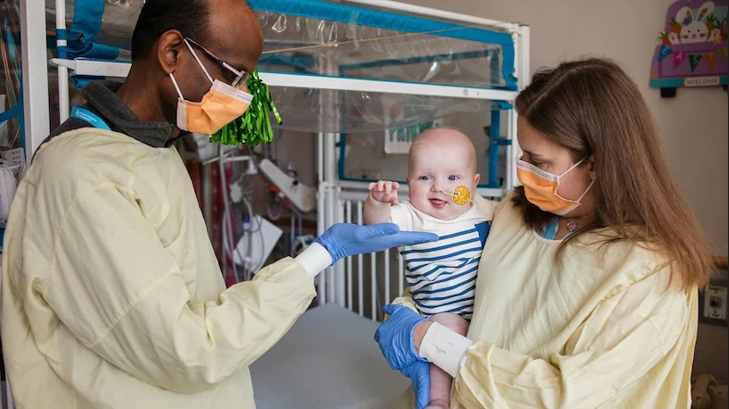Doctors used CRISPR to rewrite a baby’s DNA and fix a rare liver disorder

In a groundbreaking medical breakthrough, doctors have successfully used CRISPR gene-editing technology to rewrite the DNA of a baby suffering from a rare and life-threatening liver disorder. This revolutionary procedure marks a new era in genetic medicine and offers hope to millions of patients worldwide.
The baby, diagnosed with a rare inherited liver condition, faced severe health complications that threatened survival. Traditional treatments offered limited relief and carried significant risks. However, the innovative use of CRISPR technology enabled physicians to precisely target and correct the genetic mutation responsible for the disorder.
CRISPR, which stands for Clustered Regularly Interspaced Short Palindromic Repeats, is a powerful tool that allows scientists to edit genes with unprecedented accuracy. By rewriting specific segments of the baby’s DNA, doctors effectively eliminated the faulty gene causing the liver disease.
The successful intervention not only improved the infant’s liver function but also prevented the progression of the disorder, significantly enhancing the child’s quality of life. Experts say this breakthrough could pave the way for similar treatments in other genetic diseases.
Researchers involved in the case emphasized the rigorous ethical protocols followed before performing the gene-editing procedure on the infant. The treatment was closely monitored to ensure safety and efficacy.
This landmark success has energized the medical community, spurring further research and investment into CRISPR-based therapies. Scientists believe that such gene-editing techniques will become standard practice in the near future.
Patients with rare genetic disorders, who previously had limited treatment options, now have renewed hope for cures through personalized gene therapy.
While the procedure offers immense promise, doctors caution that more extensive clinical trials are needed to assess long-term effects and broader applicability.
The family of the baby expressed immense gratitude to the medical team and researchers who made this life-saving treatment possible.
As CRISPR technology continues to evolve, the potential to cure numerous genetic diseases grows, heralding a future where inherited disorders may become a thing of the past.
This breakthrough highlights the incredible advancements in biotechnology and genetic engineering, opening doors to innovative healthcare solutions.
Stay tuned for more updates on CRISPR technology and its transformative impact on medicine and patient care worldwide.

















